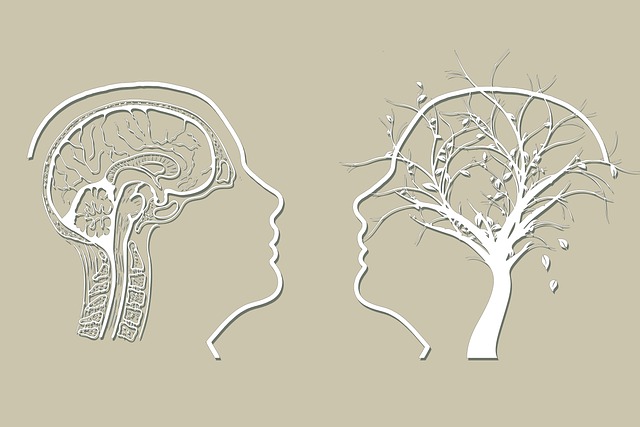Denver Terminal Illness Therapy emphasizes cultural sensitivity as a cornerstone of effective mental healthcare, recognizing that patients' diverse backgrounds and beliefs significantly influence their emotional healing. By integrating cultural competency, therapists create an inclusive environment, offering respectful, tailored care to diverse communities. This approach reduces stigma, promotes holistic healing, enhances job satisfaction, and enriches therapeutic experiences for terminal illness patients in Denver. Through specialized programs, open dialogue, and culturally sensitive practices, Denver sets a global standard for personalized therapy.
In today’s diverse society, cultural sensitivity is paramount in mental healthcare practice. Understanding cultural diversity ensures effective treatment for all individuals, especially those facing terminal illnesses. This article explores key aspects of culturally competent care, drawing insights from Denver’s innovative approach to terminal illness therapy. We delve into strategies for providing inclusive services that cater to the unique needs and beliefs of diverse populations, with a particular focus on Denver Terminal Illness Therapy.
- Understanding Cultural Diversity in Mental Healthcare
- The Impact of Cultural Sensitivity on Terminal Illness Therapy
- Denver's Approach to Culturally Competent Care
- Strategies for Providing Inclusive Mental Health Services
Understanding Cultural Diversity in Mental Healthcare

In the diverse landscape of mental healthcare, understanding cultural diversity is paramount. Denver Terminal Illness Therapy centers, for instance, must recognize that patients’ backgrounds, beliefs, and traditions significantly influence their emotional healing processes. This involves not just treating symptoms but also addressing the unique challenges faced by individuals from various ethnic, racial, religious, and socio-economic groups. Mental health professionals play a crucial role in fostering an inclusive environment where every patient feels seen, heard, and respected.
Cultural sensitivity goes beyond self-care practices; it is about integrating cultural competency into the very fabric of mental healthcare services. This involves continuous learning and adaptation to different cultural contexts, ensuring that therapies and interventions are not just effective but also culturally responsive. In light of this, Mental Health Policy Analysis and Advocacy becomes essential, pushing for systems that support emotional healing processes tailored to Denver’s diverse communities.
The Impact of Cultural Sensitivity on Terminal Illness Therapy

Cultural sensitivity plays a pivotal role in providing effective Denver terminal illness therapy, recognizing that each patient’s experience is deeply influenced by their cultural background and personal beliefs about health, illness, and death. In a city like Denver, with its diverse population, mental healthcare providers must be adept at navigating the complex web of cultural nuances to offer compassionate and tailored support. This approach becomes even more critical when addressing terminal illnesses, where patients often face not only physical challenges but also emotional and spiritual struggles that are deeply rooted in their cultural identities.
By integrating cultural sensitivity into therapy practices, mental health professionals can significantly reduce the Mental Illness Stigma Reduction Efforts, fostering an environment of trust and understanding. They can help patients explore Self-Care Practices specific to their cultural contexts, promoting holistic healing. Moreover, recognizing and addressing cultural barriers contributes to Burnout Prevention Strategies for Healthcare Providers by enhancing job satisfaction and improving patient outcomes. This tailored approach ensures that Denver terminal illness therapy is not just medically competent but also culturally responsive, ultimately enriching the therapeutic experience.
Denver's Approach to Culturally Competent Care

Denver’s approach to culturally competent care is a beacon for mental healthcare practices around the globe, highlighting the importance of understanding and respecting diverse cultural backgrounds in therapeutic settings. This approach recognizes that effective therapy isn’t one-size-fits-all, especially when addressing complex issues like terminal illness. By incorporating insights from various cultures, Denver Terminal Illness Therapy fosters an environment where patients can openly discuss their unique perspectives and experiences related to depression prevention and building resilience.
The integration of cultural sensitivity goes beyond mere awareness; it involves tailoring therapeutic techniques and interventions to align with the patient’s cultural norms. This personalized approach not only enhances the quality of care but also encourages patients to engage actively in their treatment journey. Moreover, Denver Terminal Illness Therapy offers specialized programs that include social skills training, ensuring that patients have the tools to navigate challenging conversations and maintain meaningful connections amidst their struggles.
Strategies for Providing Inclusive Mental Health Services

In providing inclusive mental health services, especially in a diverse city like Denver, it’s crucial to adopt strategies that respect and embrace cultural differences. This involves tailoring therapy sessions to accommodate various cultural backgrounds, languages, and beliefs, ensuring effective communication. For instance, offering Denver terminal illness therapy that considers the unique needs of end-of-life patients from different ethnic groups can significantly impact their mental wellness.
Mental health professionals should engage in ongoing training on cultural sensitivity, incorporating techniques like active listening and adapting assessment tools to be culturally relevant. Moreover, developing mental wellness coaching programs tailored to specific communities can foster trust and encourage individuals to seek help. Effective communication strategies, including the use of multilingual resources and culturally sensitive language, are essential components of this approach.
In light of the diverse cultural backgrounds among individuals seeking mental healthcare, particularly in the context of Denver’s terminal illness therapy services, cultivating cultural sensitivity is paramount. As discussed, culturally competent care, such as that provided by Denver, significantly enhances patient outcomes and experiences. By adopting strategies for inclusive mental health services, professionals can bridge cultural gaps, foster understanding, and offer tailored support. This approach ensures that everyone, regardless of their background, has access to effective and respectful treatment, ultimately improving the overall well-being of our communities.











